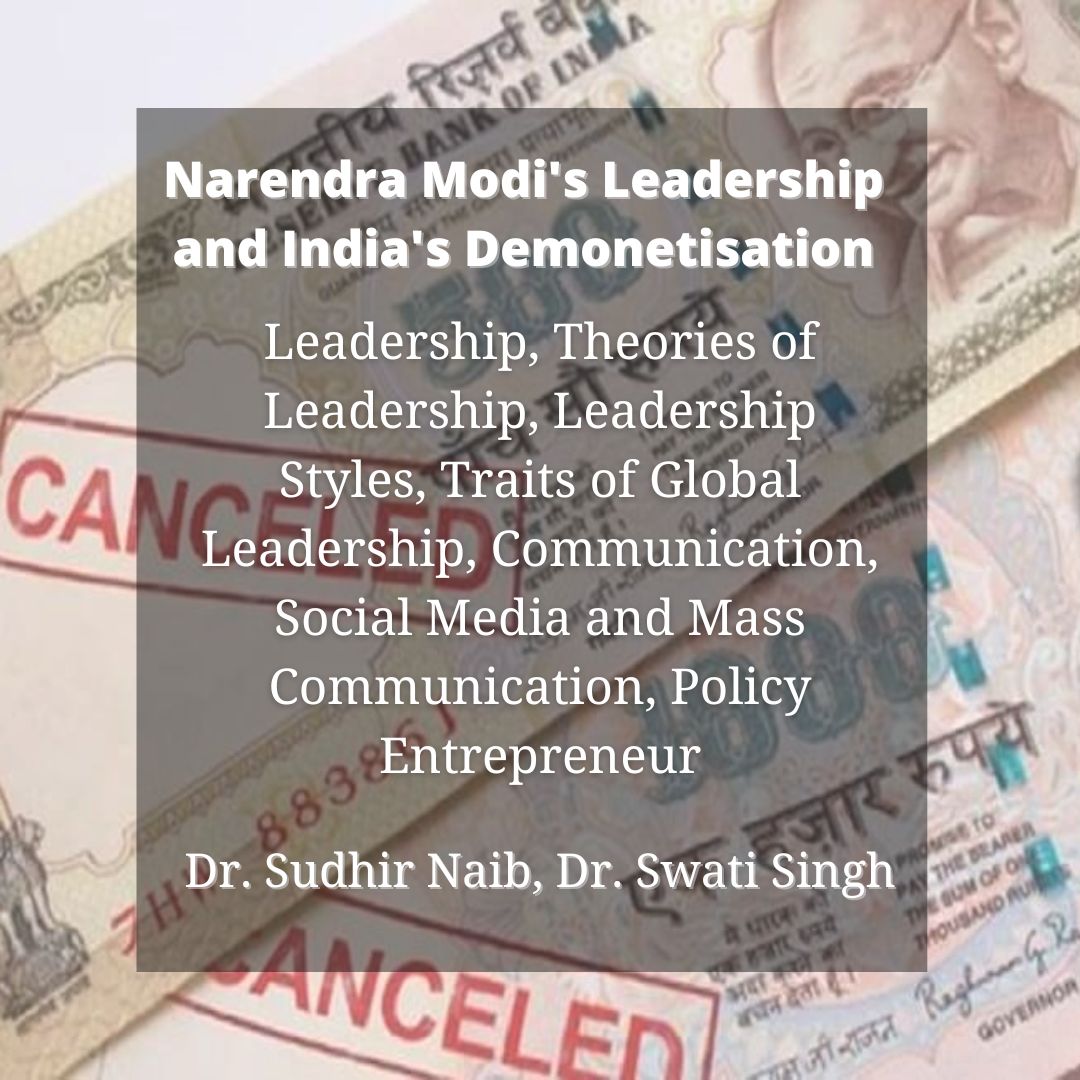
 Case Study
Case StudyNarendra Modi's Leadership and India's Demonetisation
In November 2016, Narendra Modi, the Indian Prime Minister announced demonetization of high denomination currency notes of INR 500 and INR 1000 to deal with corruption, black money, terrorist activities, and counterfeiting. This decision resulted in scrapping notes worth INR 15.4 trillion, about 86% of the value of the total currency in circulation. The case outlines the political scenario in India before general elections in 2014 when corruption became a major issue. In the general elections 2014, BJP came to power overthrowing 10-year rule of UPA government led by Congress. The case describes how Narendra Modi beginning from modest roots emerged as the most influential leader in India and took the unconventional decision to demonetize. The case provides unique opportunities to study leadership and leadership theories, role of persuasive communication in building support for the leader, and characteristics of an effective ‘policy entrepreneur’. The demonetization decision raised many questions: Was the Prime Minister right to rock the boat when sailing was smooth? Was the PM investing resources and his reputation in the hope of some future return? Was it the ‘right window of opportunity’ to undertake the risky change? How would the PM execute a decision of such a magnitude? How would he build a wide coalition of support across multiple political parties, and among people in a country of 1.3 billion?
Learning Objectives. The case is intended for use in a graduate and post-graduate level course on organizational behaviour, leadership, change management, communication, and public policy. It can also be effectively used in executive development course. After working through the case and assignment questions, the students will be able to do the following:
- Explain theories of leadership and leadership styles.
- Analyze global leadership traits.
- Describe how a ‘policy entrepreneur’ aligns ‘problem’, ‘politics’, and ‘policy’ to take advantage of opportunities to increase self-interest.
- Examine the effectiveness of social media and mass communication in influencing masses.
-
 Pub Date:16 Oct 2018
Pub Date:16 Oct 2018 -
 Source:ICRC
Source:ICRC -
 Discipline:Organisational Behavior & Organisation Development,Strategic Management,Managerial Economics,Financial Management,Corporate Social Responsibility,Business Ethics,Other
Discipline:Organisational Behavior & Organisation Development,Strategic Management,Managerial Economics,Financial Management,Corporate Social Responsibility,Business Ethics,Other -
 Product#:1017
Product#:1017 -
 Keywords:Leadership, Theories of Leadership, Leadership Styles, Traits of Global Leadership, Communication, Social Media and Mass Communication, Policy Entrepreneur
Keywords:Leadership, Theories of Leadership, Leadership Styles, Traits of Global Leadership, Communication, Social Media and Mass Communication, Policy Entrepreneur -
 Length:Pdf : 19 page(s) , Doc : 19 page(s) ,
Length:Pdf : 19 page(s) , Doc : 19 page(s) ,
 Case Study
Case Study